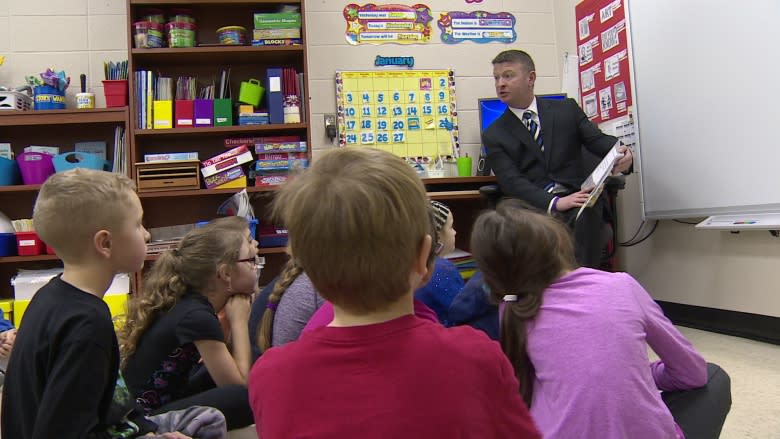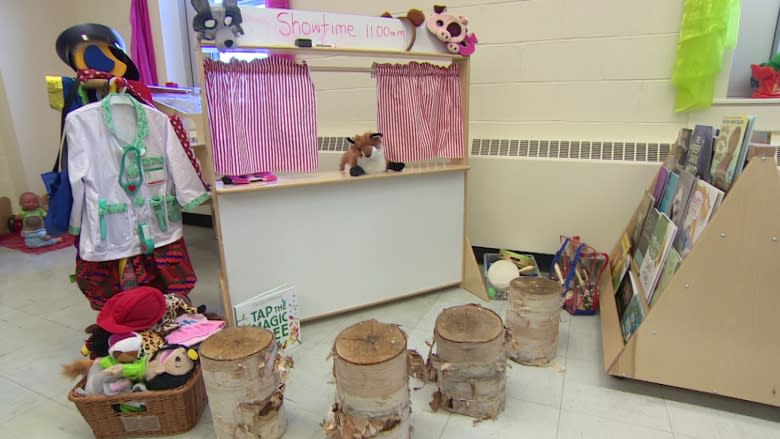Full-day kindergarten straining system, pushing teachers to breaking point
Teachers in Newfoundland and Labrador are growing frustrated with the effects of full-day kindergarten on the rest of the system, as class sizes grow and resources shift around.
With more students and fewer teachers in her school, Sherry Maher now spends 200 minutes a week — nearly three and a half hours — pulling hallway duty instead of enjoying a break.
The Grade 4 teacher has seen her class size increase to 28 students, and she has lost instructional resource teachers who used to assist her in the classroom.
"Those frustrations on top of everything else a classroom teacher or any teacher is expected to do is outrageous," Maher said, her voice cracking with vexation.
The province allocated about 142 extra teachers and student assistants to the Kindergarten level in 2016, but cut teachers elsewhere, eliminating 61 positions.
With fewer teachers, class sizes spiked and the classroom capacity was increased in Grades 4 to 9.
In total, the full-day kindergarten initiative cost the province $30 million to roll out, with an additional cost of $13 million per year to operate.
'Brought in on the backs of everybody else'
Maher was one of several teachers during CBC's Inside the Classroom forum to express support for the idea of full-day kindergarten, but criticize the roll-out.
"We feel very strongly that the full-day kindergarten program was brought in on the backs of everybody else in the education system," said Kevin Giles, principal of a K-6 school on the Avalon Peninsula.
Class sizes increased throughout the entire school, he said, yet no additional resources were brought in.
As well, kindergarten teachers were left to set up their own classrooms with elaborate stations, such as puppet theatres, dress-up clothes, and group areas for story time and sing-a-longs.
Giles said they did most of the work during summer vacation.
"It's all just too much," said Craig Hicks, teacher and vice-principal at a small school in central Newfoundland.
The frustration with student behaviours, lack of resources, education methods — everything — was made worse by the implementation of full-day kindergarten.
"Every issue can be drawn back to the oversized classes," Hicks said.
"It was a domino effect from the roll out of full-day kindergarten. It was just like a tidal wave going through the system."
Hicks warned that until more resources are added to make up for the strain from the new kindergarten classes, the weight of tension will only increase on the backs of teachers.
"Something is going to break, and we are close to breaking," he said.




